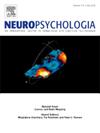是什么在引导学习判断?记忆还是启发式?事件相关电位研究》。
IF 2
3区 心理学
Q3 BEHAVIORAL SCIENCES
引用次数: 0
摘要
记忆监控能力对学习过程的有效性至关重要。学习判断(JOL)是一种元认知判断,通常用于测量这种能力。关于学习判断的基本认知机制,有不同的假说认为,学习判断是推理经验还是回忆经验的结果,这一问题一直存在争议。为了从神经科学的角度解决这个问题,我们采用了事件相关电位(ERP)方法来研究 JOL 的时间动态。72 名年轻人参加了一项以词对为刺激物的外显记忆任务。他们的 JOL 是在延迟条件下通过分类选择获得的。此外,他们的记忆表现还在识别阶段进行了测试。我们比较了不同 JOL 水平的 ERP 成分,并根据 JOL 水平比较了识别测试中的命中反应。分析结果表明,在刺激呈现后的早期时间窗口内可以观察到 JOL 过程,这一点可以从所有 JOL 水平的 P100、N100、P200、N200 和 P300 成分的激发得到证明。然而,只有 N100 的振幅在这些水平之间有所变化。在中央和顶叶电极上,所有 JOL 水平都有一个潜伏期为 330-500 毫秒的负 ERP 成分,其振幅没有差异。对识别阶段 ERP 的分析表明,在与熟悉程度相关的中额叶新旧效应(FN400)振幅上,命中反应没有表现出显著差异;然而,JOL 水平高的人引起的与回忆相关的顶叶新旧效应振幅较小。这些研究结果支持两种假设,即 JOL 受启发式和信息可检索性的影响。本文章由计算机程序翻译,如有差异,请以英文原文为准。
What guides the judgment of learning: Memory or heuristics? An event-related potential study
Memory monitoring ability is essential for the effectiveness of learning processes. Judgment of Learning (JOL), a metacognitive judgment, is commonly used to measure this ability. An ongoing debate questions whether JOL is an outcome of an inferential or recollective experience, as suggested by different hypotheses regarding the underlying cognitive mechanisms of this judgment. To address this question through a neuroscientific perspective, we aimed to investigate the temporal dynamic of JOL adopting event-related potential (ERP) methodology. Seventy-two young adults participated in an episodic memory task involving word-pairs as stimuli. Their JOLs were obtained through categorical choices in a delayed condition. Additionally, their memory performance was tested in the recognition phase. ERP components were compared for different JOL levels, as well as for the hit responses in the recognition test according to their JOL levels. The analyses showed that JOL processes are observable within an early time window after stimulus presentation, as evidenced by elicitation of the P100, N100, P200, N200, and P300 components across all JOL levels. However, only the amplitude of the N100 varied among these levels. A negative ERP component with 330–500 ms latency was also evident for all JOL levels in the central and parietal electrodes, which did not differ in amplitude. The analyses of the recognition phase ERPs showed that the hit responses did not exhibit a significant difference in the familiarity-related mid-frontal old/new effect (FN400) amplitude; however, those with high level of JOL elicited recollection-related parietal old-new effect with a smaller amplitude. These findings support both hypotheses suggesting that JOL is influenced by heuristics and the retrievability of information.
求助全文
通过发布文献求助,成功后即可免费获取论文全文。
去求助
来源期刊

Neuropsychologia
医学-行为科学
CiteScore
5.10
自引率
3.80%
发文量
228
审稿时长
4 months
期刊介绍:
Neuropsychologia is an international interdisciplinary journal devoted to experimental and theoretical contributions that advance understanding of human cognition and behavior from a neuroscience perspective. The journal will consider for publication studies that link brain function with cognitive processes, including attention and awareness, action and motor control, executive functions and cognitive control, memory, language, and emotion and social cognition.
 求助内容:
求助内容: 应助结果提醒方式:
应助结果提醒方式:


